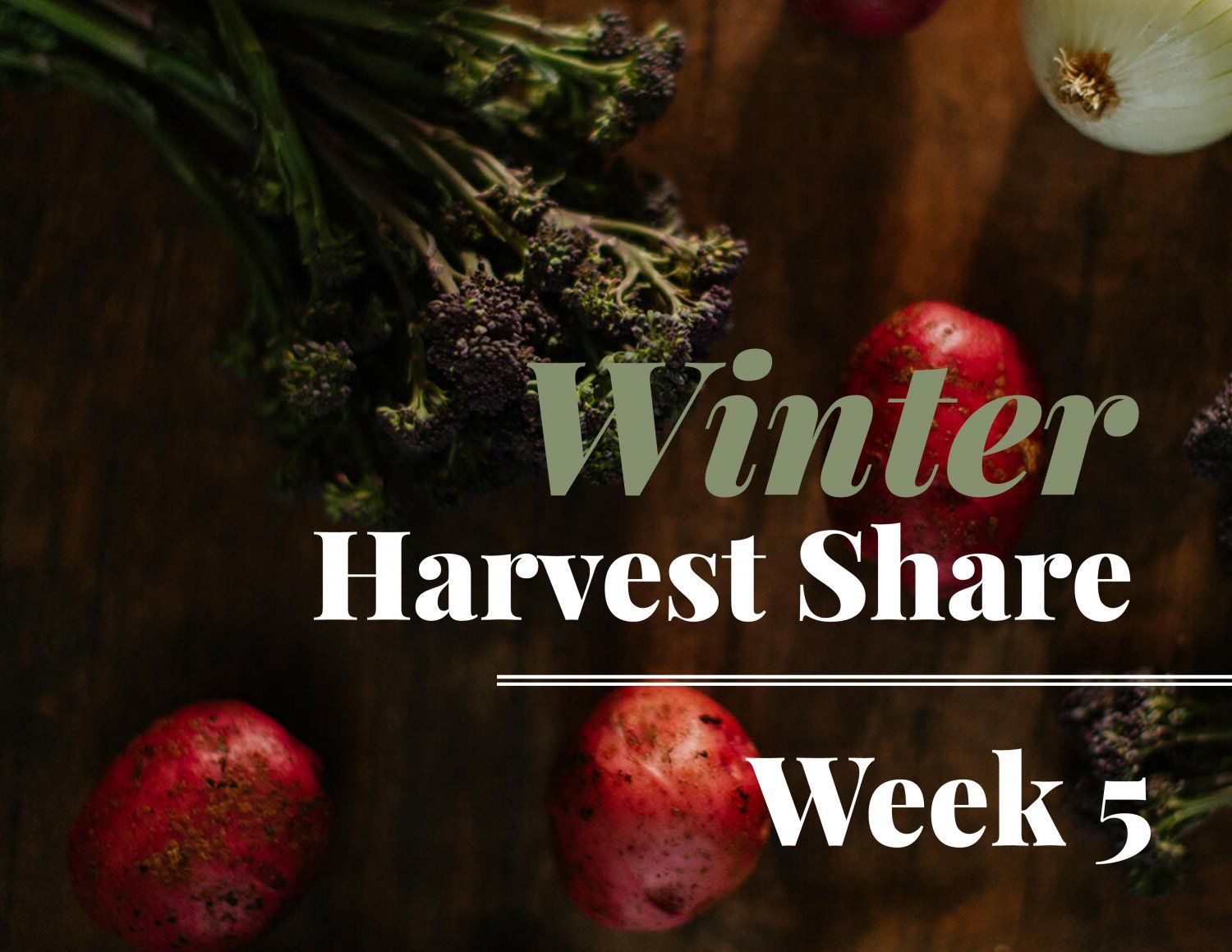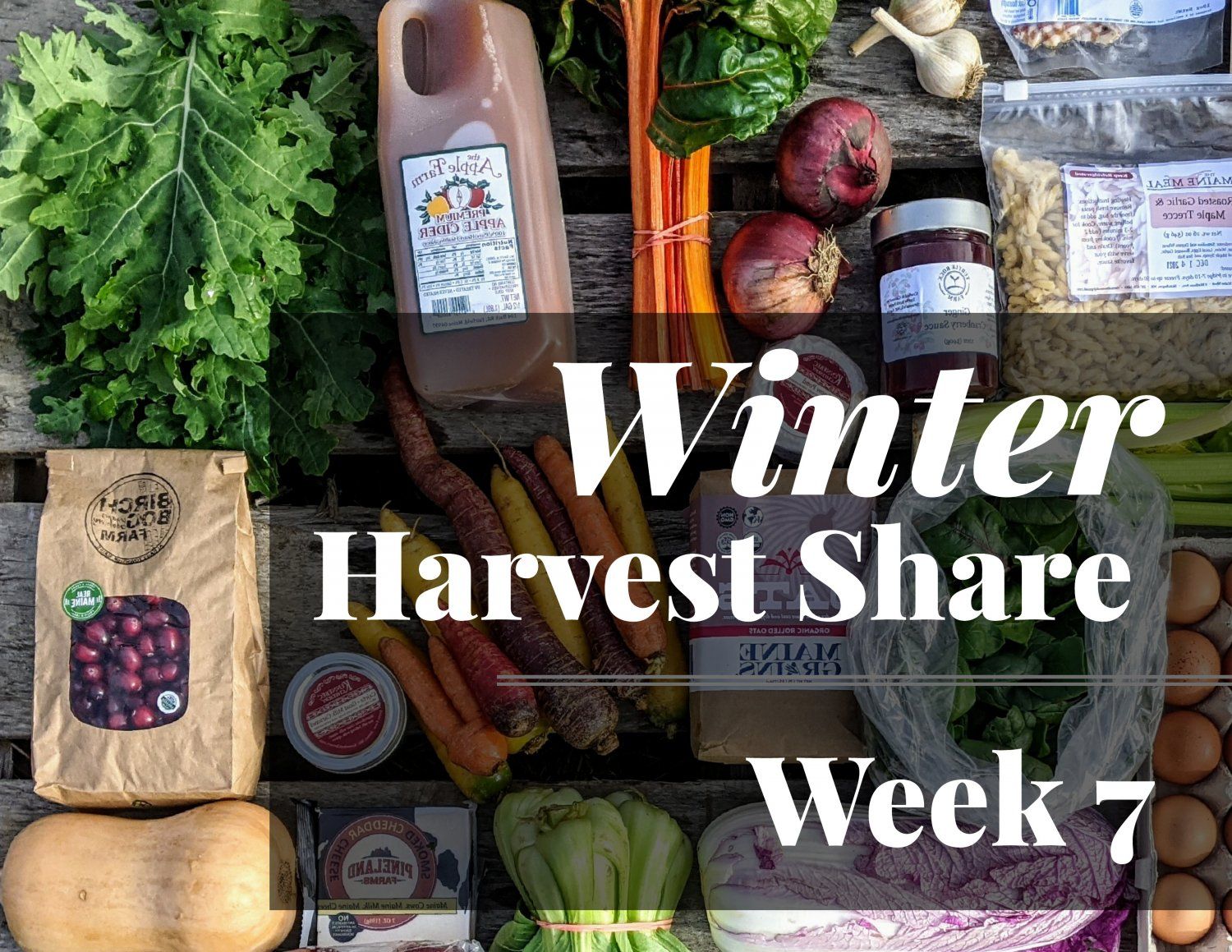Woohoo Week 6! I think I'm getting a little solar energy boost from working in the greenhouses on this sunny sunny day, because the winter doldrums have faded away for the minute. It's amazing what the feeling of spring can do for the psyche, even when I truly know that there are some 4 degree nights coming down the pike. But seriously it is starting to feel a little more like spring on the farm, even with winter still looming over us. Seed orders have started rolling in, field maps are coming together, and we've been meeting and hiring the new team members (so excited!!).
We've also launched Summer sign-ups and members scheduled to auto-renew have done so. If you are not opted in for auto-renew, but would like to sign-up, you can do so here: https://www.harvie.farm/farm/harvest-tide-organics/signup If you have any questions about whether or not you are already signed up - do not hesitate to contact us - we're happy to answer any questions!
You should also know that this coming week is the sixth delivery (of eight) for the Winter Share. Your last share of the Winter will be delivered the week of March 14th. Want to keep the veggies rolling straight through the Spring? Sign-up for your Spring share now here: https://www.harvie.farm/farm/harvest-tide-organics/signup
Spring shares do no autorenew from the Winter Shares so you have to sign-up manually.
When we did the survey a few weeks back we had some great questions come through so I thought I would take a second to answer some!
Have biosolids (sludge) been spread on your farm/do you have PFAs?
We've heard from few of you directly about this and we know it's on everyone's mind (have no idea what I'm talking about? Check out here: PFOA and PFOS, Maine Department of Environmental Protection and here: The Legacy of PFAS in Agriculture - Maine Organic Farmers and Gardeners (mofga.org)). Thankfully our fields (and the whole East Bowdoinham agricultural area) have never been spread on or have even been licensed for spreading of sludge or biosolids. You will likely hear Bowdoinham mentioned in local reports on the PFAs issue because there are several sites in town (there are hundreds in the state of Maine), but all of those are located miles from the farm.
There is so much we don't yet know about this tragedy for Mainers and Maine farms, and Eric and I are keeping a very close watch on things as they progress and we learn more about this class of chemicals.
Will there be a U-pick this year?
YES! We are so excited for this year's Upick! I just ordered all the flower seeds, Sarah has been deep in the planning, and it's going to be awesome! The Upick has had a tough go of it the last few years with the overwhelm that COVID has brought to the farm, but we're really excited to grow it and share it with all of you this season! We expect it to be full of TONS of flowers, fun and easy to pick veggies, some berries (if the deer can be held off) and lots of love! We hope you will come visit us this summer!
Why don't you grow brussels sprouts any more?
This isn't really a frequently asked question, but when it came up it made me happy because it seemed like a great jumping off point to teaching/explaining about some decision making processes on an organic, sustainable farm. We don't grow Brussels sprouts because we have tried for years to make them profitable and despite all our efforts, we haven't been able to do it - but it's not really all about money because we do actually grow things that sometimes don't us money because we know you love them (looking at you beans and peas:). The issue with Brussels sprouts is multi-fold. The biggest issue is that they are incredibly susceptible to a pest called aphids (if you've eaten our Brussels, you've likely seen an aphid or 2). They also take a large amount of area to grow, a lot of energy (and natural pesticide) to manage, and they stay in the ground a lot longer than most crops. This perfect storm of issues means not only do they easily succumb to aphids, but they host them over large areas of the farm, which can make it difficult in subsequent years to plant other crops that aphids like. Such as broccoli, cauliflower, broccolini, kale, cabbage, radishes, turnips, rutabaga, kohlrabi - all in the same family as Brussels sprouts. We still have to manage all these crops for pests even when we don't plant Brussels, but it's honestly easier and more sustainable. So we made the hard choice last year to cut out the sprouts. We'll probably get overly confident in a few years and try again, but at least for now, we'll just enjoy not having to worry about them all summer long.
.jpeg)
.jpeg)
.jpeg)




